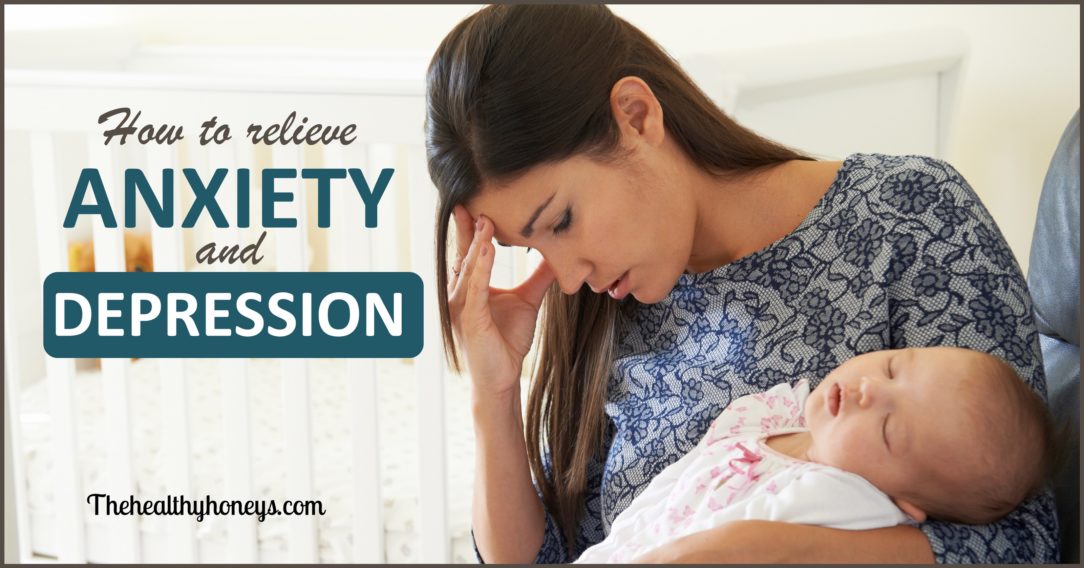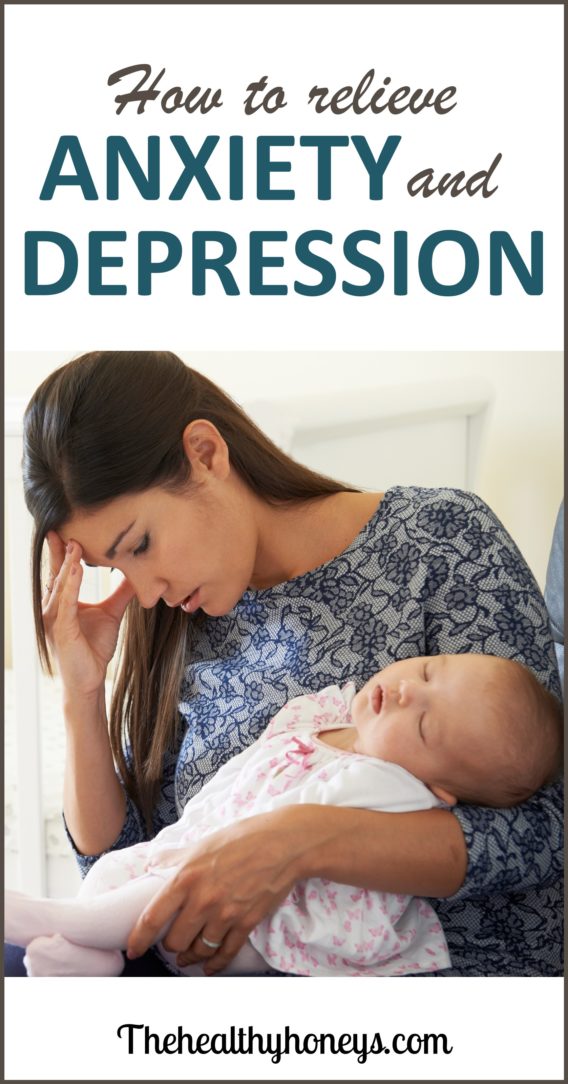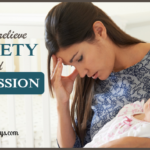
Anxiety and Depression can come to many people. Depending on your circumstances depends on the treatment and remedies.
Where is it coming from?
Depression can be caused by a myriad of things. Here are some great places to start. When looking at your depression or anxiety it is good to start by looking at your life. Postpartum depression comes from a dramatic drop in hormones and the many changes that are taking place in your body all at once. It can be exacerbated by the lifestyle changes that come with a new baby like no sleep or time for self-care. Other forms of depression may come from a general hormone imbalance, an imbalanced lifestyle, genetics, stress, or hard life events. Sometimes we can just work to cope with our depression the best we can as we strive to get our life back in balance. In the case of a difficult life event, it is okay to take time to grieve and let ourselves feel and process whatever it is we are going through.
It’s okay to feel sadness!
When talking about easing depression and anxiety I want to be sure that I don’t make anyone feel like they can’t feel sadness. Sadness and mourning is an important part of life. Look at your life.
Lifestyle Changes
Take a minute to take a closer look at what may be causing your depression. Sometimes our life circumstances can lead to depression because we are going through difficult things or we are making choices that we don’t believe in. For instance, maybe you are being pressured to be dishonest at work or are having struggles in your marriage. You may be struggling with finances, your spiritual life, or your sexual life. Take a look at the different areas of your life and work to fix whatever is out of-balance.
Negative self-talk:
Negative self-talk is a hallmark of depression. The way we speak to ourselves has a lot of power. Telling yourself that you are hopeless or bad, or wrongly taking blame for anything that may go wrong, and dwelling on worst-case scenarios can fuel the negative feelings we have. There is worth in each of us and no one is always to blame. Training ourselves to listen to and challenge our negative voices is the first step in speaking more positively to ourselves. Say your negative thoughts out loud or write them down. The goal is to acknowledge that these are just thoughts. Being honest with ourselves is very important. If we truly are to blame then we need to acknowledge that and work to fix it. When we take on blame that isn’t ours, we feel guilty for something we can’t fix. Challenge the way you speak to yourself. When you mess up you aren’t worthless…you just messed up and can do better next time. Challenge your negative thoughts. Are you really worthless? Your children need you. Counter your exaggerated statements. Each time you do this they lose power and you can see yourself in a more honest and positive light.
Stressful Lifestyle:
Stress can be caused by external factors like losing a job or getting a divorce. It can also be caused by internal factors like expecting too much of ourselves. Take a look at your lifestyle. Are you working at a job you hate or in an environment where you are pressured to question your integrity often? Work on repatterning your life. What options do you have? Is there another job you may like better. Realize that we all have limits. Prioritizing rest time can go a long way to help you focus and reset to take on each days challenges. Get enough sleep and exercise and eat healthy so that you can handle the stress each day.
Not enough sleep:
Get enough quality sleep. Sleep helps us rejuvenate and plays a huge role in combatting depression. 60-80% of people with depression have trouble with sleep. Getting too little or too much sleep can negatively impact all of us. Going to bed early and rising early is a great way to get a healthy sleep pattern. Read more here about how to improve your sleep patterns.
Exercise:
When studying any new depression medication they always use exercise as a control because it is so efficient at easing depression. Exercise is great for our body and mind. Exercise uses up stress chemicals in your body and produces hormones that help you feel good. It improves sleep and can improve self-esteem. It is an all-around great winner to help ease depression.
Diet:
Fixing your diet can go a long way in reducing depressive symptoms. Diet affects the microorganisms that live in our gut. New research has found if gut health and brain health is very connected. Gut bacteria produce neurochemicals. Eating plenty of fermented and probiotic-rich foods can aid in depression. you can also take probiotic supplements.
Consuming Alchohol, Caffeine, and high-calorie low nutrient foods can also increase depressive symptoms. Decreasing or eliminating these foods can improve mood. The artificial sweetener Aspartame is also linked to depression. It can be found in many diet sodas and other sugary foods.
Like this post? Please share it by:
Pinning it here!







